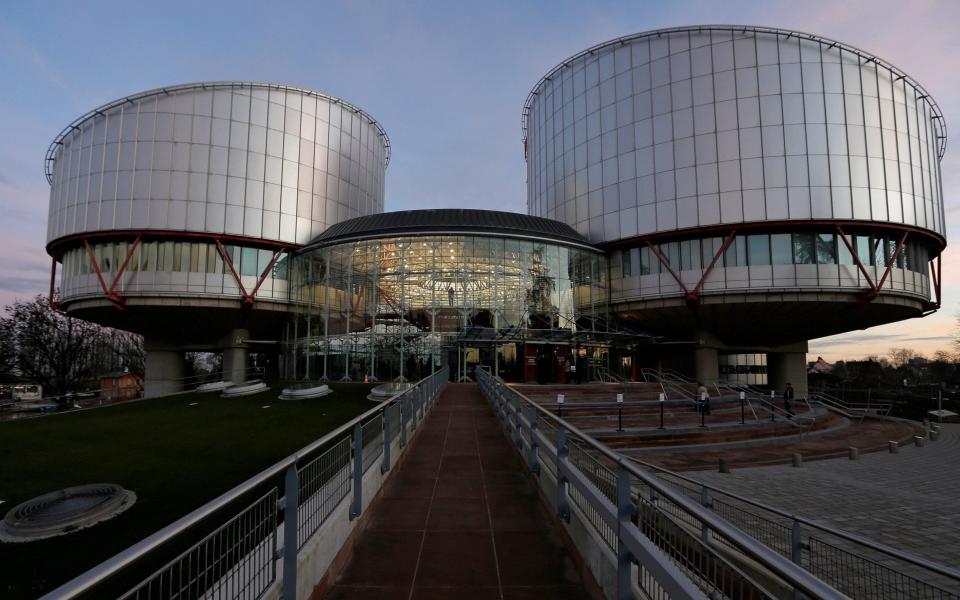UK close to Brexit deal tying it to the European Court of Human Rights

British negotiators are close to clinching a deal that commits the UK to remaining subject to rulings by the European Court of Human Rights after Brexit, as Michael Gove put the chances of securing a free trade agreement at about 66 percent.
The UK would sacrifice a new extradition treaty and access to EU criminal databases if it quit the international agreement, under the terms of the potential deal, Brussels sources told the Daily Telegraph.
Separately David Frost, the UK’s chief negotiator, signalled a potential British concession over subsidy law.
He said, “We're beginning a discussion on if it is possible to go further than normal in a free trade agreement and agree some provisions that shape and condition subsidy policy on both sides."
In a potential olive branch to Brussels, he agreed that a strong dispute resolution system for state aid, a key EU demand, could also be in the UK's interest.
In the House of Commons, Mr Gove, a Cabinet Minister, was asked if there was a 66 percent chance of a free trade deal with Brussels. "That's about right," the Chancellor of the Duchy of Lancaster said.
The EU insists that respect for the European Convention on Human Rights (ECHR), and its Strasbourg court, is a condition for cooperation in law enforcement after the end of the transition period on December 31.
Either party can trigger a “guillotine clause” suspending or terminating the judicial cooperation agreement if they have serious concerns about the protection of human rights and the rule of law, under a British proposal put to the EU.
Lord Frost, the UK’s chief negotiator, told peers in the Lords EU Committee on Wednesday, “I think I can see a way forward on that that satisfies all sides’ needs. We aren’t there yet but I think I can see it.”
The deal, part of the ongoing UK-EU trade negotiations in London this week, risks enraging Tory MPs and voters. More than half of Conservative voters back reforming human rights law, according to a poll published on Sunday.
The ECHR, and its European Court of Human Rights, are part of a completely different legal system to the EU. They are both part of the Council of Europe, which has 47 member states including Russia and the UK.
“Upholding the ECHR would be identified in the deal as a precondition for cooperation in the security area. Should that stop, then the security cooperation would end,” an EU source said.
“The negotiators are still exploring but it is in a more constructive space.”
A UK spokesman said, “The UK remains committed to the ECHR. We agree that cooperation with the EU should be based on our shared values of respect for fundamental rights and for the rule of law.”
Failure to reach agreement on police cooperation before January 1 will not mean the end of all collaboration between UK and EU police forces.
But that cooperation will be based on older, pre-EU agreements or Brussels’ rules for intelligence sharing with non-EU countries, which are less efficient and more cumbersome.
Dominic Cummings, the Prime Minister's most senior adviser, has attacked the European court’s judgements in the past for blocking the deportation of “dangerous” foreign criminals such as radical Islamist cleric Abu Qatada.
Lord Frost suggested it was possible that Boris Johnson’s deadline of the October 15 EU summit could be hit.
He said, "We’ve made quite good progress so far. This is a hugely wide ranging agreement and in many areas the landing zone and the nature of the agreement is pretty clear if not exactly pinned down yet."
Michel Barnier, the EU's chief negotiator told ambassadors in Brussels the European Council summit would be for "stock-taking" rather than for the blessing of a finalised agreement.
Charles Michel, the president of the European Council, spoke to Mr Johnson, who underlined his commitment to try and reach a deal, on Wednesday.
"The EU prefers a deal but not at any price," Mr Michel tweeted after the call, "Time for the UK to put its cards on the table."
In the Lords Committee, Michael Gove claimed that the EU had 'recognised' that exit summary declarations for firms sending goods from Northern Ireland to Great Britain 'are not strictly necessary for the safety and integrity of the Single Market'.
If true, that would remove one of the reasons for controversial clauses in the Internal Market Bill overriding the Brexit Withdrawal Agreement. A successful trade deal is widely believed to make the clauses unnecessary and the EU has said it will never sign off on a deal while the provisions remain in the legislation.
"We’ll wait and see what happens in the negotiations," Mr Gove said, when asked if the clauses could be dropped if the trade talks were successful.


